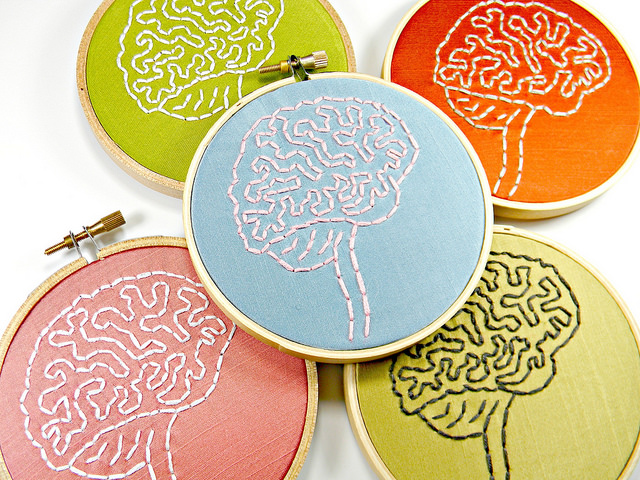The average, normal brain shrinks with age.
I don’t like bringing it up, but it’s true.
The volume of the brain shrinks at a rate of 5% after the age of 40—and possibly even faster after age 70. But as a psychiatrist, I also believe that there are ways we can actively keep our brain active and young.
Science hasn’t figured out the equivalent of “Botox injections” for the brain (although I’m sure someone is working on it). But there is already something readily accessible and non-invasive to keep our brains young—yoga and mindfulness.
A recent study featured in the Frontiers in Human Neuroscience using magnetic resonance imaging (MRI) of the brain shows how yoga protects the gray matter brain volume from shrinking.
More experienced yogi brains had volumes of this grey matter equivalent to people who are much younger. The protection in brain volume directly correlated with how much and how frequently the person practiced yoga.
In other words, the practice of yoga could protect the aging brain from shrinking.
The protection of brain volume was more noticeable in areas of the left hemisphere, the side of the brain that is associated with positive emotions and restful experiences. The left hemisphere is associated with parasympathetic nervous system activity—the branch of your nervous system otherwise know as the “rest and digest” system responsible for the relaxation response.
Furthermore, emotions like joy and happiness have exclusively more activity in the left hemisphere of the brain on positive emission tomography (PET) brain scans. In fact, one brain region with larger gray matter volume in experienced yoga practitioners (right middle temporal lobe) is the same area activated on functional MRIs in nuns when they felt union with God.
This “neuroprotective” effect of yoga has also been found in brain imaging studies of people who meditate. In some regions of the brain, 50-year-old meditators were found to have the gray matter volume of 25-year-olds.
These changes to the brain can occur within months. One meditation study found brain thickening in several areas of the brain after only eight weeks of a mindfulness-based stress reduction program.
The regions of the brain responsible for activities like mind wandering, learning, memory, cognition and emotional regulation grew.
In contrast, the area of the brain responsible for fear, anxiety, and stress shrank after people underwent the 8-week mindfulness program.
Patanjali may not have had brain MRIs available when he said that yoga is rooted in the concept of stillness in the mind (Patanjali’s Yoga Sutra 1.2 “yogas citta vrtti nirodhah” or yoga is the control of the waves/fluctuations of the mind), but he sure knew what he was talking about.
Modern medical science is simply catching up.
~
Source:
Frontiers in Human Neuroscience.
Relephant:
This is Your Brain on Yoga. {Infographic Magic}
~
Author: Marlynn Wei
Apprentice Editor: Brandie Smith/Editor: Alli Sarazen
Photo: Hey Paul Studios/Flickr












Read 0 comments and reply